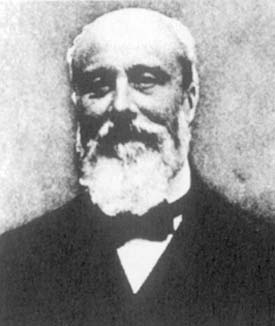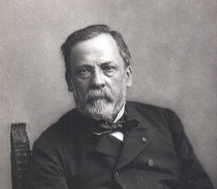
The alleged (epistemic) connection between intellectual virtues and scientific practice has generated an interesting debate in the history and philosophy of science. To put it very simply, the contentious issue is on whether in order to be a good scientist you need to be virtuous too. The debate stemmed from Pierre Duhem’s idea that moral qualities of some sorts (like virtues) are necessary even in science, which is usually considered as a merely epistemic enterprise. In particular, in his book German Science – Some Reflections on German Science: German Science and German Virtues, Duhem said: “In the realm of every science, but more particularly in the realm of history, the pursuit of the truth not only requires intellectual abilities, but also calls for moral qualities: rectitude, probity, detachment from all interest and all passions” (p 43).
Milena Ivanova and Cedric Paternotte have recently published an article about this issue. The article supports multiple theses, but here I want to focus on just one of the authors’ assumptions. Ivanova and Paternotte advance the thesis that virtues are not necessary to be a good scientist. The good scientist is here understood as the epistemically successful scientist. We may debate over the equation “good scientist = successful scientist,” but this is not the topic of this post. Ivanova and Paternotte support the idea of virtues as non-necessary in science by means of a historical example. Louis Pasteur in the 1860s tried to undermine the view according to which life can spontaneously generate itself without the presence of a parent organism. This theory is called ‘spontaneous generation’, and it was in opposition with his germ theory. Pasteur claimed in public that the experiments supporting this theory were flawed, and hence the evidence for spontaneous generation was weak, if not worse. However, historical evidence has shown that Pasteur was not that transparent because his notebook reveals that he had gathered evidence in favor of spontaneous generation. Moreover, it has also been shown that he was convinced of germ theory mainly because of bias, even though the evidence was not decisive. Nonetheless, it seems that Pasteur was right; spontaneous generation is false while his germ theory was surely a case of epistemic success as defined above. Ivanova and Paternotte conclude that Pasteur – no doubt a successful scientist – had vices, and these vices were what drove Pasteur to the defeat of alternative theories to his germ theory. Therefore, vices can be beneficial to science.In 2007, David Stump published an article where he explicitly made the connection between the field of virtue epistemology (that emphasizes the role of virtues in knowledge formation) and Pierre Duhem. In other words, Stump tried to make the case that Duhem was a virtue epistemologist ante litteram. This article has generated a series of criticisms. Sometimes critics focused on the claim about Duhem, but then the debate has moved to the general question about the connection between scientific practice and the cultivation of virtues.

One may criticize the historical reconstruction of this particular episode. An alternative strategy is to ask whether Ivanova and Paternotte are actually saying that Pasteur behaved viciously or whether that he was motivated by the willingness to deceive. If the latter, then evidence for this claim should be provided. If the former, Ivanova and Paternotte are assuming a strong thesis, namely, the fact that you cannot be virtuous if you are vicious in one respect. In other words, they are assuming a very strong version of the unity of virtues.
The idea of the unity of virtues is widely discussed especially in the literature interpreting Aristotle or Thomas Aquinas’ theory of virtues (see for instance this article). I cannot spell out such a big debate in a blog post, but in a nutshell the idea is that there is an intimate connection between phronesis (or prudentia) and moral virtues such that you cannot have one without having the others and vice versa. Aristotle (and Aquinas too) in particular was trying to say that virtues are interdependent, and that a person cannot be properly called ‘good’ (at least according to specific theories of good) when virtues are separated and co-exist with vices. Ivanova and Patenotte uncritically assume such idea, and they suggest that if you are vicious in one respect, then you are vicious all the way down. Since Pasteur was dishonest when trying to refute the theory of spontaneous generation, then he was a vicious person. But even Aquinas, when he distinguishes between perfect and imperfect virtues, seems to suggest that there can be virtues coexisting with vices (cf. Summa Theologiae I-II, q. 63, a. 2). These would not properly count as ‘virtues’, but they will be called ‘imperfect virtues’, and they will be an inclination to do some kind of good resembling perfect virtue. Let me just discuss imperfect virtues.

There are several examples in the history of science of scientists who were vicious in one respect, but virtuous (though imperfectly) in others. Take for instance the paradoxical case of James Watson and Francis Crick; their behavior (especially Watson’s) with respect to Rosalind Franklin has been a source of blame. Allegedly, Watson and Crick ‘stole’ – or at least used without permission – Franklin’s data. While Watson and Crick are not considered as exemplars of virtuous human beings, they nonetheless embody the intellectual virtue of open-mindedness (or at least they behaved in scientific practice as if they were open-minded). Consider the following episode. The relation between DNA and amino acids was an important challenge for biology in the 1950s and 1960s. As with other biochemists and molecular biologists, Watson and Crick had the data but the interpretation of data was difficult and ambiguous. The physicist George Gamow, in a letter sent Crick and Watson after he read their 1953 article, treated the problem of the relation between nucleotides and amino acids as a coding problem, with nucleotides forming a code used then to translate DNA into amino acids. While Crick and Watson – especially Crick – soon realized that Gamow’s specific solution was untenable, still they thought that treating the problem as a coding problem had its merits. As Lily Kay noted in her book Who Wrote the Book of Life, Gamow was “the first to define what became ‘the coding problem’ and (…) visualized heredity as a process of information transfer, operating via a code” (p 128). It is exactly because they were ‘open-minded’ in considering any idea coming from any field that they were able to recognize the importance of Gamow’s strategy (though being also critical), which served as a guiding principle for ‘cracking the code’. In other words, while being vicious in some respects, this did not prevent Watson and Crick of being virtuous in another.
These considerations raise important issues. For instance, issues about how we should understand the unity of virtues, whether the ideal of perfect virtue is attainable or if we should be just fine with ‘imperfect virtues’, to what extent and how a vice can prevent the cultivation of virtues, and whether we can elaborate a more general theory of trade offs between virtues.
Originally published by at ctshf.nd.edu on March 02, 2017.